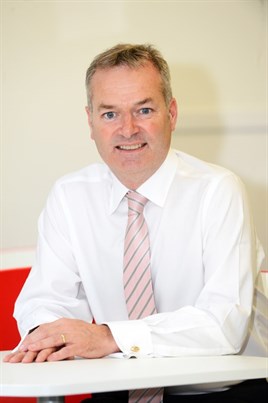Download the graphs for this feature.
In a privatised rail industry whose first 20 years has frequently been hobbled and compromised by a chronic lack of effective leadership, I had to smile wryly recently when a prominent private sector chief said he was “concerned by the growing number of leadership bodies”.
At the annual Atkins company drinks ‘ bash’ at the St Pancras Grand, recently departed Rail MD Douglas McCormick was addressing his couple of hundred guests when he voiced his concerns about (but without actually naming) the Rail Delivery Group and the rather newer Rail Supply Group.
He was clearly concerned about a long period of no effective industry leadership being followed by the arrival of the RDG and RSG. He could, of course, also have added the new bodies currently emerging at the Department for Transport - the Office of Rail Passenger Services, the Rail Executive and the Franchise Advisory Panel.
Maybe we shouldn’t raise an eyebrow at this sudden desire for control - it’s long overdue that the railway should have a ‘guiding mind’ other than the Department for Transport.
And this leadership vacuum has gone on from the earliest years. I have been asking “who speaks for the railway?” in RAIL Comments for more than a decade now - especially in the chaotic and febrile aftermath of a fatal accident, or latterly with regard to fare increases, structural issues or costs.
The industry’s lack of leadership led to industry commentators (including myself, Philip Haigh, Christian Wolmar and Roger Ford) frequently being sought out to explain and interpret a confusing or controversial development, by an always curious, invariably persistent and frequently downright hostile wider media. Ironically, it was former Railtrack Chief Executive Gerald Corbett who summed up the inevitable outcome of the industry’s failure here: “If you don’t set the agenda,” he said to me, “then some other ****** will!”
I believe that many of the industry’s ongoing reputational problems (especially around fares) were triggered by this lamentable lack of leadership, and then made worse by a condescending PR approach that treated the media and its readers/viewers like fools. The industry has paid a heavy price, for example, for its head-in-the-sand refusal to amend its ‘kick-me’ annual fare increase approach, in particular.
To use the now discredited ‘flex’ system to ruthlessly jack up fares on busy routes while leaving lightly used routes alone, in order to stay within the required average, was always cynically manipulative.
What was worse was the Association of Train Operating Companies’ ludicrous claim that it “didn’t know” what the maximum fare increases were. Even my schoolboy maths knows that if you know the average, you must have started with the highest and lowest fares.
ATOC clearly believed that if it persisted with this ludicrous PR policy for long enough, then passengers would come to regard the annual January hike with the same weary, accepting resignation that council tax increases are regarded each year. That will never happen, and it was foolish to ever believe it would. Meanwhile, the reputational damage has been immense. Thank goodness that in the pre-election politicking, the ‘flex’ that led to this was abolished.
Can RDG put this reputational damage right with regard to fares?
Let’s take a moment to remind ourselves of how we got to where we are. RDG emerged post-McNulty, with a focus on what this report saw (rightly) as excessive unit costs. RDG comprises Network Rail, the principal passenger franchise owning groups, and representatives from the larger freight companies. RDG is self-created, with self-appointed members, has no formal accountability to anyone, for anything, and at the outset it chose to exclude the massive supply industry from its top table.
RDG is uncomfortable (and can be prickly) with descriptions like this. But it’s nonetheless true, and is important given that it claims to ‘speak for’ and ‘represent’ the entire industry. Contractors and suppliers are represented in second-tier RDG structures and workgroups, but are not members of the top table.
At first this caused massive discontent among those who believed themselves to be excluded from a leadership body for an industry in which they have very long-term interests, but which was about to be led (as they saw it) by short-term franchise holders of insufficient experience and questionable ability and credibility.
One high-profile early critic effectively summed up this view: “If this was the aviation industry, you would not have an organisation speaking for the whole industry which consisted entirely of airlines - including some relatively tiny companies. You’d want Boeing and Airbus in there alongside BA, Ryanair and Flybe. Otherwise it would be a nonsense.”
Others who saw themselves as ‘left out’ were, behind the scenes, spitting blood about the RDG’s selective approach to membership, with its focus on (as it was put to me) “here-today-gone-tomorrow passenger operators”, to the exclusion of massive companies with billions of pounds, euros and dollars committed for maybe the next 30 years.












